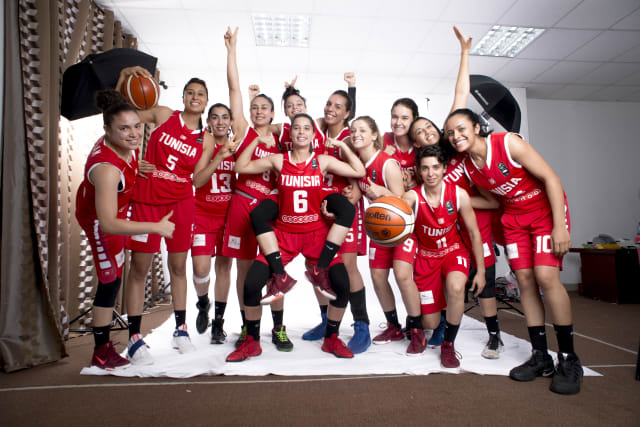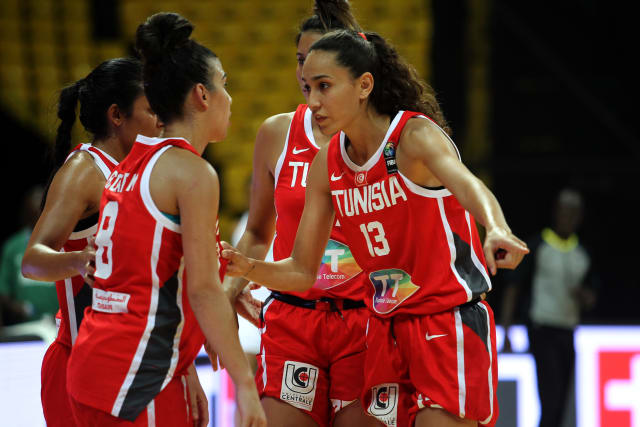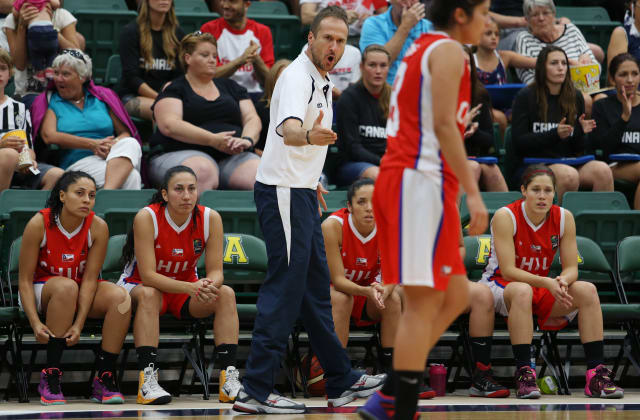Women's AfroBasket 2021 - Team Profile: Tunisia
TUNIS (Tunisia) - With a new head coach and players that have played together for a few years now, Tunisia aim to be a force to be reckoned with in Women' AfroBasket landscape
TUNIS (Tunisia) - With a new head coach and players that have played together for a few years now, Tunisia aim to be a force to be reckoned with in Women' AfroBasket landscape.
A team with an admirable history, the Tunisias are far from being rated as title contenders, but this team can't be underestimated.

Here are some key facts about Tunisia:
Team: Tunisia
FIBA Ranking Women: (World No. 90; Africa No. 15th)
Last participation in the Women's AfroBasket: 2019 Dakar, Senegal (3 losses in as many games)
Best result at Women's AfroBasket: Second-Place finish in 1974 and 2001
How they qualified for the AfroBasket 2021: Following the withdrawal of FIBA Africa Zone 1 teams (Algeria, Morocco and Libya), Tunisia, who were expected to host the regional qualifier, secured qualification to the Final Round.
World: After finishing second in the Women's AfroBasket 2001 held on home soil, Tunisia - alongside African champions Senegal - represented the continent at the FIBA Women's Basketball World Cup 2002 in China. Tunisia lost to Korea, Cuba, Taipei, France and fellow Africans Senegal.
Youth teams impact: Tunisia youth teams have enjoyed some success at FIBA U18 Women's African Championship. After claiming a Second-Place finish in 2008, the team finished fourth in 2012; they returned home with a Sixth-Place finish in 2016, but have missed out the last two editions of the tournament in 2018 and 2020.
History/Qualification: Every time Tunisia hosted the Women's AfroBasket, the team produced incredible results. They have reached the Final in 1974 (Tunis) and 2001 (Tunis) and claimed a Fourth-Place finish in 1990 in their capital city of Tunis.

Key Players: Houda Hamrouni, Maroua Baccar, Wafa Loubiri and Rania Laouini form the core of this Tunisian team. This is a quartet that has played for Tunisia for the past couple of years, and remain a solid part of the squad.
Rising Star: Ibtihel Abbassi emerges as one of Tunisia's brightest talents. Pre-selected for the team's preparation, the the 17-year-old first made her international introduction during the FIBA U17 Women's Skills Challenge African Qualifiers 2020. She is also known for her 3x3 basketball passion and dedication. If selected to the final roster, she may become the team's youngest player.
 Ricardo Gonzalez Davila's Chile finished eighth in the 10-nation FIBA America’s Women’s Championship 2015 in Edmonton, Canada
Ricardo Gonzalez Davila's Chile finished eighth in the 10-nation FIBA America’s Women’s Championship 2015 in Edmonton, Canada
Head coach: Spaniard Ricardo Gonzalez Davila has become Tunisia's third head coach over the last three edition of the tournament. Prior to Davila, two Tunisians - Riadh Ben Abdallah (2017) and Moe Monastiri (2019) - held the coaching position.
Davila, who coached Chile at the FIBA America’s Women’s Championship 2015 - has Tunisian Atef Maoua as one of his assistant coaches.
Outlook: The good thing for Tunisia is that their Group B opponents - Mali and Cote d'Ivoire - are no strangers to them. Although Tunisia lost to Cote d'Ivoire 74-50 two years ago in Dakar, they know that the are capable of doing better than that, especially after beating the Ivorians 69-64 in the 2017 edition of the tournament in Bamako, Mali.
On the other hand, Tunisia know too well the difficulties they face against title contenders Mali, a team that is stronger, taller and more experienced in this type of competition.
 Houda Hamrouni
Houda Hamrouni
The winners of each group qualifies automatically to the Quarter-Finals, but even if Tunisia finish second or third in their group, they will have a second chance to stay in contention if they pass the Qualification Round to the Quarter-Finals.
Looking at the composition of the twelve teams in the tournament, surely Tunisia can do better than they have done in 2017 and 2019. A Middle table finish seems feasible.
FIBA